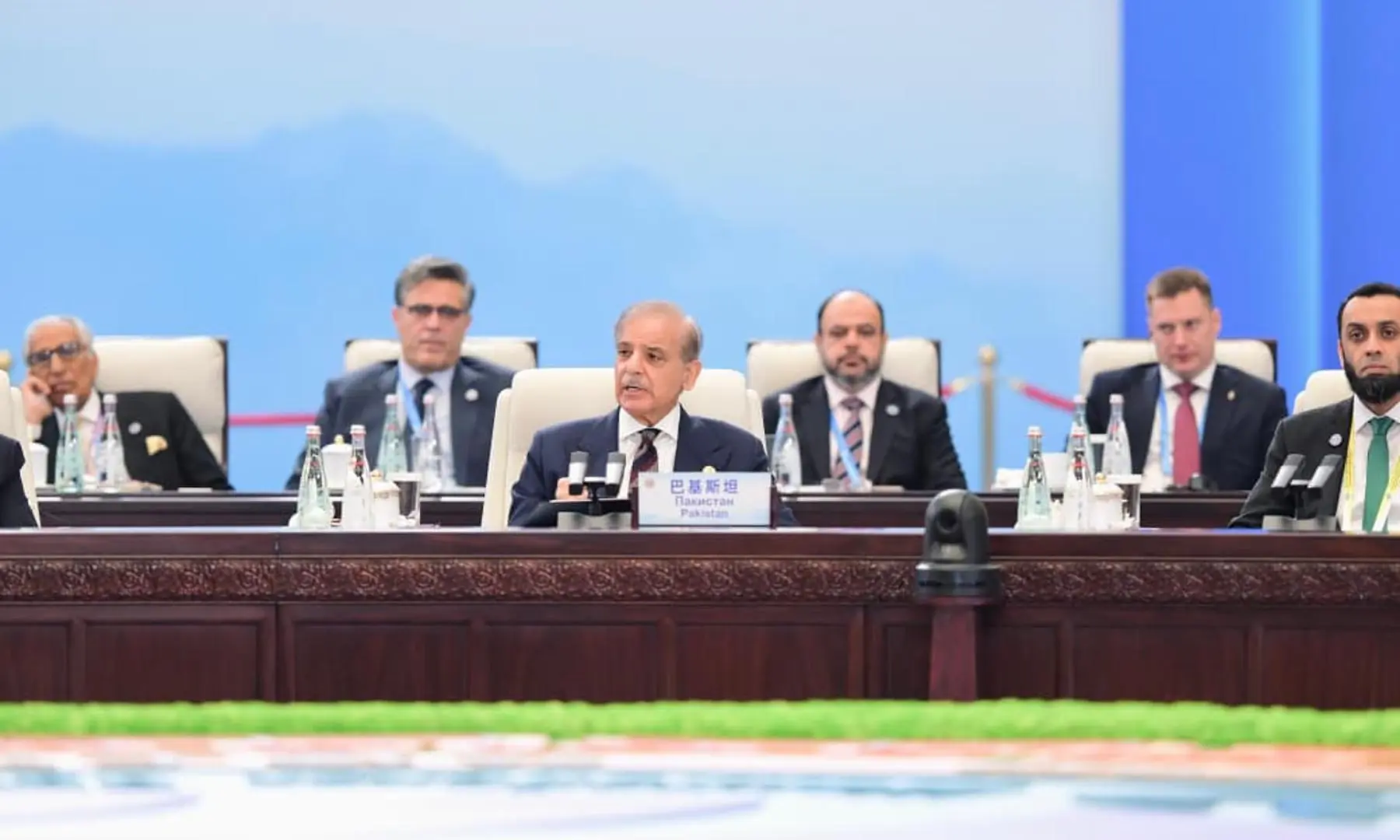Prime Minister Shehbaz Sharif used his address at the Shanghai Cooperation Organization (SCO) summit in Tianjin on Monday to call for renewed dialogue on long-standing disputes, including the Indus Waters Treaty, while stressing Pakistan’s commitment to peace, cooperation, and multilateralism.
Speaking before leaders from China, India, Russia, Iran, and Central Asian states, Shehbaz underscored that Pakistan respects all international treaties and expects the same in return. His remarks were a clear reference to India’s move earlier this year to unilaterally hold the treaty in abeyance—an action the Permanent Court of Arbitration in The Hague recently ruled India had no authority to enforce. “Uninterrupted access to water under existing agreements is essential to the smooth functioning of the SCO and the prosperity of our peoples,” he said.
The prime minister reaffirmed that Pakistan seeks dialogue over confrontation, urging for a “comprehensive and structural” discussion under the SCO framework to resolve disputes. He emphasized Pakistan’s abiding belief in diplomacy and multilateralism, while also pointing to disturbing developments in the region that challenge these principles.
Shehbaz’s address also touched on Pakistan’s current humanitarian struggles, noting devastating floods that have swept across three major rivers, destroying crops, livestock, and infrastructure. He thanked China and the wider international community for their support, praising the resilience of the Pakistani people in the face of disaster.
On security, the premier drew attention to the hijacking of the Jaffar Express in March, in which 26 lives were lost, claiming Pakistan has “irrefutable evidence” of foreign involvement. He denounced terrorism in all its forms, stressing that Pakistan has paid a staggering price—more than 90,000 lives and $152 billion in losses—while fighting extremism on behalf of regional and global stability.
The prime minister also highlighted Pakistan’s role in promoting connectivity, citing the China-Pakistan Economic Corridor as a practical example of SCO’s vision for integration. He voiced hope for a peaceful and stable Afghanistan, emphasizing trilateral cooperation with China and Afghan authorities as crucial for long-term regional prosperity.
Turning to the Middle East, Shehbaz condemned Israel’s attacks on Iran and the continuing bloodshed in Gaza, calling the suffering of Palestinians “a wound on our collective conscience.” He reiterated Pakistan’s support for a two-state solution with pre-1967 borders and Al-Quds Al-Sharif as Palestine’s capital.
Alongside the summit, the prime minister met SCO counterparts, including Iranian President Masoud Pezeshkian, who expressed condolences over Pakistan’s floods and pledged solidarity.
By weaving issues of water, security, regional cooperation, and humanitarian crises into his speech, Shehbaz sought to position Pakistan as a voice for dialogue and diplomacy at a time when the region faces overlapping challenges.


